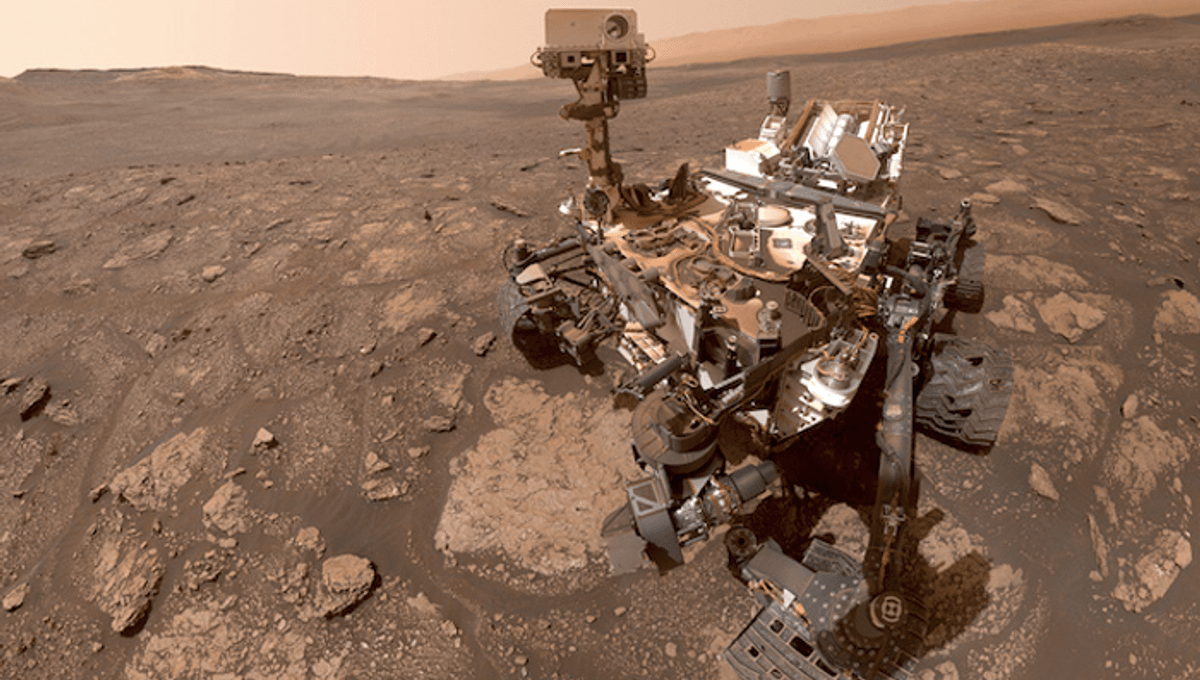
Sudden increases in methane concentrations in the Martian atmosphere have been a major puzzle for scientists, and the answer may lie in fluctuations in atmospheric pressure. The conclusion wouldn’t really change the prospects for life on our neighbor – but if it’s right, it would be a big step forward in knowing how to look for it.
On Earth, methane, as a thousand fart jokes will tell you, is often produced by living organisms. So when Mars Express detected some, it gave a boost to hopes for life. Earthly methane comes from other sources as well, but Mars Express couldn’t see any active volcanoes or oil drilling projects, so the possibility microbes were responsible remained plausible. Curiosity has since detected it on site, but not consistently, suggesting an erratic source.
What no one could work out at the time, and has remained mysterious ever since, was what was causing sudden increases. The most likely explanation was that pockets of gas were escaping from underground reservoirs, whether their original source was living or not. Yet all attempts to explain what caused these sudden releases failed – until now.
“Understanding Mars’ methane variations has been highlighted by NASA’s Curiosity team as the next key step towards figuring out where it comes from,” Los Alamos National Laboratory graduate student John Ortiz said in a statement.
Ortiz is part of a team that simulated the movement of methane through networks of rock fractures and its release into the atmosphere. Their model suggests changes in air pressure and temperature determine when methane will escape. Drops in pressure encourage methane release, but temperature affects how well rocks trap the gas. On this basis, the model predicts pulses should be most common just before dawn in the Martian northern summer. During the day, the methane either escapes to higher altitudes or is destroyed by some unknown process.
We might expect the timing to be something we would already know, but atmospheric sampling requires so much power that Curiosity can’t run its other instruments at the same time. Consequently, it takes measurements intermittently, mostly at night. These have led to the conclusion there is a seasonal, as well as daily, pattern to the methane spikes – but identifying exactly what that pattern is has proven harder.
For the model to match observations, the authors found, that subsurface fractures need to exceed a density of 0.1 percent, so we may have learned something about the conditions in which the methane is trapped already.
Curiosity’s controllers can adjust the timing of its sampling to test theories of when pulses should happen, and these findings could be put to use. “Our work suggests several key time windows for Curiosity to collect data,” Ortiz said. “We think these offer the best chance of constraining the timing of methane fluctuations.”
If the model is confirmed, it will allow existing and future rovers to know when to sample, and possibly allow them to track releases to their sources, as well as confirming the sort of rock formations in which to look. There is reason to think there is a methane source within Gale Crater – although as it continues its slow trek up Mt Sharp, it’s probably not going the right way to find it.
The study is published open access in the journal JGR Planets.
Source Link: Finally, A Possible Explanation For Mars’ Strange Bursts Of Methane